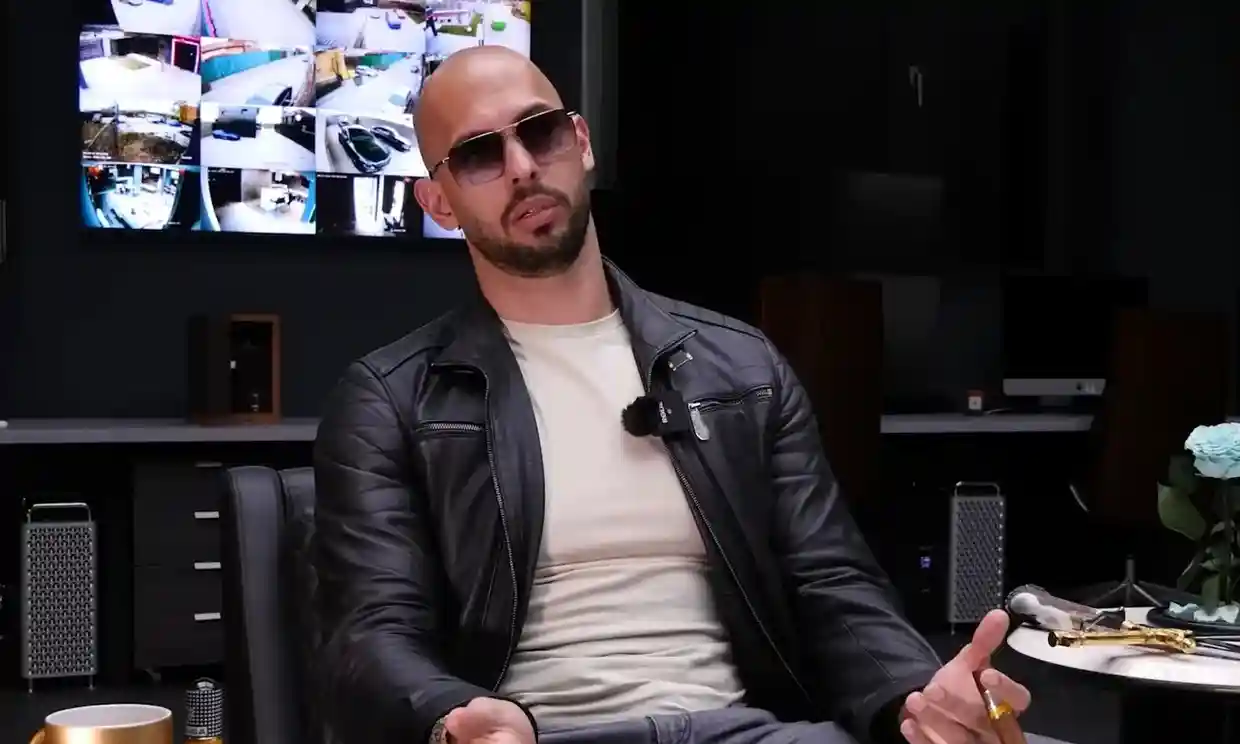Is Andrew Tate Fuelling a Masculinity Crisis?
Views Writer Izzy Tiffin discusses how how Andrew Tate represents a lost demographic of young men.

Women are men’s property, they should “bear some responsibility” for being raped, and men should “have the control” over women’s minds.
These are the views of Andrew Tate, the British-American kickboxer turned infamous internet idol. If you haven’t yet heard of him – count yourself lucky. He’s a self-proclaimed misogynist who combines outdated, derogatory, and often violent messages about women with top tips on how men can get rich, get women – and frankly get whatever they want. Arrested in Bucharest on 29 December for rape and human trafficking, he’s one of the most hated men on the internet.
Yet Tate has also built himself an immensely loyal fanbase among his 5.4 million Twitter followers. Many of them are young men who regularly defend him. It baffles me that some of my male peers have, at best, excused Tate’s grotesque misogyny as “satire”, and at worst, agreed with some of his messages.
So, why do young men like Andrew Tate?
Aside from the shock factor of his comments gaining online views, I think Tate’s appeal is the binary ticket to success that he offers young men. It’s his no-nonsense messages around discipline, men changing themselves for the better, because “as a man, you get to build your character”. His hypo-masculine and lavish lifestyle of private jets, fast cars and big muscles tells his followers that “if you watch my videos and follow my advice you can also be like me”. It’s easy to see how someone lacking confidence and purpose could be inspired by a man like Andrew Tate.
‘Tateism’ centres around male empowerment and emancipation, but in a way that fosters aggrieved male entitlement and insecurity. No longer are men, specifically white men, at the centre of society. The rise of identity politics, cancel culture and wokeism is gradually pushing young men a little further to the margins. Tate’s online videos constantly take advantage of this.
Using chess as an analogy for gender roles, Tate explains: “The king moves one square at a time and the queen can just zip across the board.” For Tate, men are burdened with having to meticulously shape their success by getting a “good job” and getting their “credit right”, “stage by stage”. Yet all women need are “lip fillers” and “boom. Zip. That’s the difference between the king and the queen”.
Analogies like this scream insecurity. Tate is threatened by the success and empowerment of modern women, so relies on the baseless logic that their appearance is a shortcut to success. At a time when young men are being told they need to check their privilege for reasons they don’t understand, Tate’s messages feed into the frustrations of an unaddressed demographic.
Of course, there is a place for some of Tate’s messages. Young men should feel empowerment, optimism and strength – but not at the expense of women, or themselves. Tate even fails to address the number one men’s issue of our time, mental health. He preaches: “Depression isn’t real. You feel sad, you move on”.
Tate is feeding a crisis in masculinity. Men shouldn’t view the success and presence of women as encroaching on their place in society. The empowerment of men should not be accompanied by archaic sexism and gender roles. Instead of championing men, Tate fuels hatred for his own financial gain.
This isn’t just about Andrew Tate. Even if Tate is jailed or is permanently de-platformed, the wider issue of male entitlement and misogyny remains. Through education and conversation among our peers, we can show that feminism is not ‘anti-men’. We should be trying to understand these views, not attack them.
Image Credit: YouTube via The Guardian
